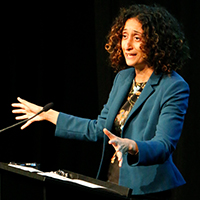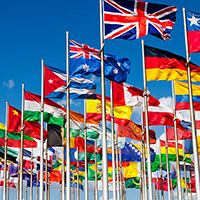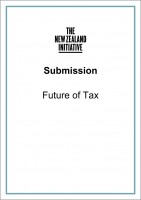
Our islands of stability
New Zealanders love to grumble about the state of politics. We hold our politicians in roughly the same regard as real estate agents and used car salespeople. Read more

Oliver is the Executive Director of The New Zealand Initiative. Before joining the Initiative, he was a Research Fellow at the Centre for Independent Studies in Sydney, the Chief Economist at the Policy Exchange in London, and an advisor in the UK House of Lords.
Oliver holds a master's degree in economics and business administration and a PhD in Law from Bochum University in Germany.
Oliver is available to comment on all of the Initiative’s research areas.
Phone: +64 4 499 0790

New Zealanders love to grumble about the state of politics. We hold our politicians in roughly the same regard as real estate agents and used car salespeople. Read more

Two high-profile cabinet members of the UK’s governing party have resigned in protest at prime minister Theresa May’s position on Brexit. David Davis, the UK’s Brexit Secretary, and Foreign Secretary Boris Johnson stepped away from their roles, saying their government made too many concessions to the EU in the two-year-old Brexit negotiations Theresa May’s government presented a Brexit plan that in a nutshell equates to free trade with the EU in goods, not in services, using technology to determine which products went where and what tariffs they were subject to. Read more

"One of the uses of history is to free us of a falsely imagined past”, the late American legal scholar Robert Bork once wrote. One might add that another use is the prevention of repeat mistakes. Read more

It is hard to introduce populist policies without hurting the economy. That is the takeout from the Government’s decision to water down its planned restrictions on foreign property buyers. Read more

In a different country, a long time ago, I once set out to be a weekly columnist. And it was no ordinary column. Read more

Almost a decade ago, I published an opinion piece that called for the abolition of what was then the G8, the group of the seven largest industrial nations and Russia. After the dramatic conclusion of last weekend’s G7 summit in Canada, we may be a step closer towards this goal. Read more

George Orwell would have had fun with the terms of reference of the Government’s Fair Pay Agreement Working Group. Practically none of these terms can be taken at their literal value, starting with the stated purpose. Read more

Oliver Hartwich speaks to Mike Hosking on the Fair Pay Agreements. These agreements will set minimum standards for wages and employment conditions like allowances, weekend and night rates, hours of work and leave arrangements for all workers within industries. Read more

The counterrevolution started in Auckland last night. That is when the Initiative hosted British educator Katharine Birbalsingh for a dinner lecture in front of an audience of almost 300 teachers, school trustees, business leaders and politicians. Read more

If politicians could make companies more productive and innovative by decree, they would have done so a long time ago. That did not stop the previous government from actively trying to steer companies’ research and development activities. Read more

Government spending decisions can be popular or unpopular; they can be justified and unjustified. We all like to criticise the government for unjustified spending to increase its popularity. Read more

Otto Wels. That is the name that came to my mind when I read through the Electoral (Integrity) Amendment Bill. Read more

Last week, the National Business Review reported that the New Zealand Government is considering introducing so-called land value uplift charges to finance new infrastructure projects. Papers obtained by the NBR under the Official Information Act show that the New Zealand Transport Agency and the Ministry of Transport are weighing the pros and cons of making property owners bear the costs of projects that increase the value of their land. Read more

Read The New Zealand Initiative's submission to the Tax Working Group on the Future of Tax. Read more

I have never been the greatest fan of PETA, the radical animal rights organisation (“People for the Ethical Treatment of Animals”). Don’t get me wrong, I love animals, usually medium-rare. Read more